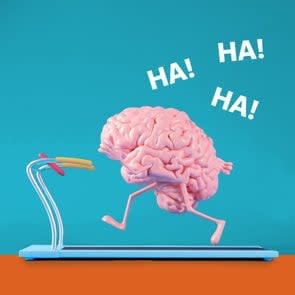April Fools’ Day: How Did It Start, and Why Is It April 1?
The origin of April Fools’ Day is debated, but its history covers centuries of April Fools’ pranks, from family high jinks (like pranks to play on your parents or your kids) to office pranks and April Fools’ jokes at everyone’s expense. Your pranking ambitions might be a little more modest, but what gave rise to those ambitions in the first place? When is April Fools’ Day 2022? And why do we collectively try to pull a fast one on this day? Let’s look into the origin of April Fools’ Day.
What is April Fools’ Day?
April Fools’ Day is an annual holiday that consists of practical jokes, pranks, and hoaxes. Pranksters often unmask their joke by yelling a loud and proud, “April Fools’!” at their victim. This custom has been observed for hundreds of years, but more on that later.
When is April Fools’ Day 2022?
April Fools’ Day always occurs on the first of April. In 1561, a Flemish poet wrote some comical verse about a nobleman who sends his servant back and forth on ludicrous errands in preparation for a wedding feast (the poem’s title roughly translates to “Refrain on errand-day / which is the first of April”). The first mention of April Fools’ Day in Britain was in 1686, when biographer John Aubrey described April 1st as a “Fooles holy day.”
It’s clear that the habit of sending springtime rubes on a “fool’s errand” was rampant in Europe by the late 1600s. On April Fools’ Day in 1698, so many saps were tricked into schlepping to the Tower of London to watch the “washing of the lions” (a ceremony that didn’t exist) that the April 2 edition of a local newspaper had to debunk the hoax—and publicly mock the schmoes who fell for it.
What is the origin of April Fools’ Day?
There’s no question that April Fools’ Day is one of the most widely recognized non-religious holidays in the Western world. Children prank parents, coworkers prank coworkers, and yes, national news outlets still prank their readers. But why? What is the origin of April Fools’ Day, and how did it become an international phenomenon? The totally legit, not-pulling-your-leg answer to the origin of April Fools’ Day is: Nobody really knows. April Fools’ Day is apparently an ancient enough tradition that the earliest recorded mentions, including the following excerpt from a 1708 letter to Britain’s Apollo magazine, ask the same question we do: “Whence proceeds the custom of making April Fools?”
April Fools’ Day history
One likely predecessor to the origin of April Fools’ day is the Roman tradition of Hilaria, a spring festival held around March 25 in honor of the “first day of the year longer than the night” (to us, the vernal equinox, which typically falls on March 20). Festivities included games, processions, and masquerades, during which disguised commoners could imitate nobility to devious ends.
It’s hard to say whether this ancient revelry’s similarities to modern April Fools’ Day are legit or coincidence, as the first recorded mentions of the holiday didn’t appear until several hundred years later.
Is April Fools’ Day celebrated worldwide?
While April Fools’ Day is technically considered a national holiday, many countries have adopted the idea of playing pranks on or around April 1st.
For example, France celebrates April Fools’ Day on April first by sticking a paper fish onto the backs of as many people as possible, while yelling “Poisson d’Avril!” This tends to be something children partake in more than adults.
In Greece, successfully tricking someone on this day is said to bring the prankster good luck for the entire year. In some parts of the country, rainfall on April 1st is said to have healing abilities.
While neither of these countries celebrates April Fools’ Day quite like the United States, they still have their own methods of tricking people. Now that you know the origin of April Fools’ Day, read up on these April Fools’ Day memes to make you laugh after getting pranked.
Sources:
BBC News: “Is this the best April Fool’s ever?”
NPR: “Why Doesn’t America Read Anymore?”
Sir Henry Ellis: “Popular Antiquities of Great Britain: Faiths and Folklore; a Dictionary of National Beliefs, Superstitions and Popular Customs, Past and Current, With Their Classical and Foreign Analogues Described and Illustrated, Volume 1″
Museum of Hoaxes: “The Washing of the Lions”
April Fools' Text Pranks for Friends
April Fools’ Pranks for Boyfriends
Jokes That Make You Sound Smart
The post April Fools’ Day: How Did It Start, and Why Is It April 1? appeared first on Reader's Digest.



